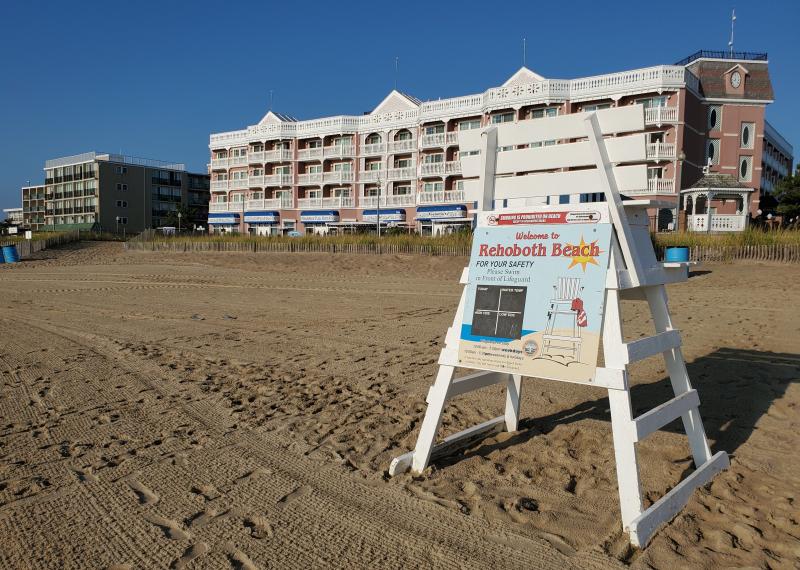Rehoboth set to approve 3 percent lodging tax
Backed by a charter change signed by Gov. John Carney in July, Rehoboth commissioners recently had their first discussion about the possibility of implementing a lodging tax of up to 3 percent on hotels, motels and tourist homes. It appears Rehoboth hotel owners and visitors should be prepared for implementation of the tax at 3 percent.
During a commissioner workshop Aug. 5, all seven commissioners voiced a favorable opinion for implementing a 3 percent lodging tax on hotels, motels and tourist homes, beginning Jan. 1, 2020. Commissioners are expected to vote on implementation of the tax during their Friday, Aug. 16 meeting.
According to a spreadsheet prepared for the workshop, the city expects roughly $113,000 in revenue during Fiscal Year 2020, which ends March 31, if the tax is implemented for Jan. 1, 2020.
Nearly a year ago, city commissioners voted unanimously in favor of a charter change allowing the city to impose a tax on hotels, motels and tourist home rentals.
During the budgeting process for the current fiscal year, Rehoboth officials discussed a budget with the 3 percent lodging tax beginning July 1, estimated to bring in roughly $890,000 of revenue.
In the days before the budget was approved, local hotel owners and the Rehoboth Beach-Dewey Beach Chamber of Commerce opposed the tax and opposed implementing it halfway through the summer season, noting city hotels would be at a disadvantage to hotels on Route 1 because Sussex County didn’t have a similar tax.
When Carney signed Rehoboth’s legislation, he also signed legislation allowing the county to implement the tax. Mayor Paul Kuhns said he expects the county to also implement its tax beginning Jan. 1, 2020.
The state already collects a lodging tax of 8 percent on hotels and motels – 5 percent goes to the state’s general fund; 1 percent goes to beach replenishment; 1 percent goes to the State Tourism Office and the remaining 1 percent is split among county tourism offices. None of the revenue goes to city coffers.
This new tax would not affect people who rent houses in Rehoboth, who already pay an accommodations tax of 6 percent, all of which goes to the city. House renters do not pay the state tax.
Kuhns said the plan is to collect the tax monthly, as the state currently does, instead of annually like the city does for the home renters tax. He said he thought it would be better for businesses because they wouldn’t have to put aside money for any longer than a month.
Commissioner Lisa Schlosser asked if the city should think about keeping the tax below the 3 percent maximum so in-town hotels have an advantage over hotels on the highway.
In response, Commissioner Pat Coluzzi said the visitors who come and stay in Rehoboth aren’t going to care about an extra 3 percent.
“They can afford to come down here and stay down here, and that’s why they do it,” said Coluzzi.
The additional revenue raised by the county must be used for beach replenishment, dredging, economic development, tourism programs, recreational activities, and water-quality and flood-control projects.
Commissioner Stan Mills said he thinks the additional revenue for the city should be targeted toward infrastructure improvements, particularly beach, Boardwalk and restrooms.
Kuhns said specific use of the revenue could be discussed at a future meeting, suggesting it be put in the general fund for now.
“We can always amend to where the money is going,” he said.























































